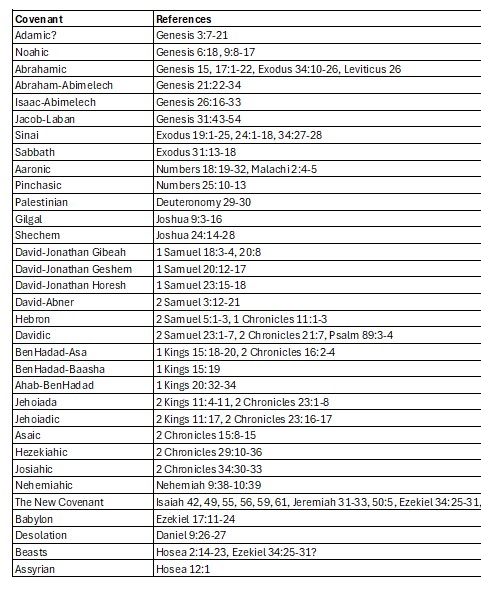Watch
Events
Articles
Market
More
There are at least 32 covenants described in the Bible and probably many more that aren't explicitly called "covenants".
There are some basic facts that can be extrapolated from the Biblical treatment of covenants:
1. Covenants generally require some kind of bloodshed to "seal" them. Hebrews 9 makes this explicit, although it is frequently and bizarrely mistranslated as talking about a "will" instead of a covenant. Those are completely unrelated ideas, and a covenant never requires the death of either party of the covenant. It requires the blood (and usually the death) of a sacrificial victim.
2. No new covenant cancels or changes an older covenant. A new covenant between the same parties can enhance their existing relationship, but it doesn't annul anything in the older covenant.
3. Breaking a covenant doesn't cancel the covenant, but it does carry consequences.
4. Covenants can be made between people, groups of people, spiritual entities, and any combination of these.
5. A covenant can be annulled by a higher authority who is not a party to the covenant, but not on a whim. If the higher authority lets the covenant stand for a period of time, he can't change his mind later and then annul it without incurring guilt and consequences on himself.
6. Promises, oaths, contracts, and statements aren't covenants unless there is bloodshed involved. A covenant is a more serious affair than any of these.



